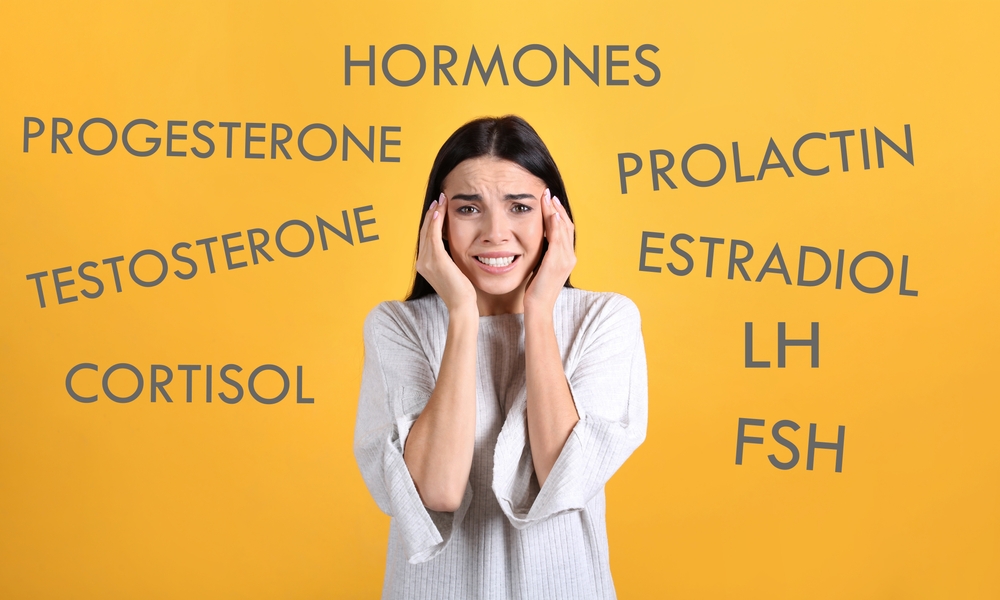The Science Behind Mood, Hormones, and Overall Well-being
In the intricate web of human biology, hormones play a crucial role in regulating many of the body’s essential functions, from metabolism to reproduction and, notably, mood. The connection between hormones and mood is powerful yet often misunderstood. When hormones are out of balance, they can affect not only a person’s emotional well-being but also their physical health and overall quality of life. With the increasing awareness of mental health, understanding the scientific connection between mood and hormones has become more important than ever.
This article will explore how hormones influence mood, why hormone imbalances can lead to mood disorders, and how taking care of your hormonal health can contribute to overall well-being.
How Hormones Influence Mood
Hormones are chemical messengers produced by the endocrine glands and released into the bloodstream. They travel to various parts of the body, influencing everything from metabolism and immune function to sexual health and, importantly, mood regulation. These hormones act on the brain to regulate mood, energy levels, and emotional responses.
Several key hormones have a direct impact on mood, including:
- Serotonin: Often referred to as the “feel-good” hormone, serotonin plays a major role in mood regulation, sleep, and appetite. Low serotonin levels are linked to depression and anxiety, while higher levels help stabilize mood and enhance feelings of happiness and well-being.
- Dopamine: Dopamine is associated with pleasure, reward, and motivation. It plays a significant role in how we experience joy and satisfaction. When dopamine levels are low, individuals may experience symptoms of depression or lack motivation and focus.
- Cortisol: Known as the “stress hormone,” cortisol is released in response to stress and plays a vital role in the fight-or-flight response. While short bursts of cortisol can help you respond to immediate threats, chronically elevated levels of cortisol can contribute to anxiety, mood swings, and depression.
- Estrogen and Progesterone: These female sex hormones are crucial for regulating reproductive functions but also have a significant impact on mood. Fluctuations in estrogen and progesterone levels, particularly during menstrual cycles, pregnancy, and menopause, can lead to mood swings, irritability, and even depression.
- Testosterone: While testosterone is typically associated with male sexual health, it also plays a role in mood regulation. Low testosterone levels can lead to mood disturbances, irritability, and even depression in men. In women, although present in smaller amounts, testosterone also affects mood and energy.
The Impact of Hormone Imbalances on Mood
A well-balanced hormonal system is essential for maintaining emotional stability and a sense of well-being. When hormones become imbalanced, it can lead to a variety of mood-related disorders, including depression, anxiety, and irritability.
1. Thyroid Dysfunction
One of the most common hormone imbalances that affect mood is thyroid dysfunction. The thyroid gland produces hormones that regulate metabolism, energy levels, and overall bodily function. When thyroid hormone levels are too high (hyperthyroidism) or too low (hypothyroidism), it can cause mood disturbances such as anxiety, depression, and irritability.
- Hypothyroidism: When the thyroid is underactive, it produces too little thyroid hormone. This can lead to symptoms such as fatigue, weight gain, and a feeling of sluggishness. People with hypothyroidism are more likely to experience depression and lack of motivation.
- Hyperthyroidism: An overactive thyroid can result in elevated levels of thyroid hormone, leading to anxiety, restlessness, and irritability. People with hyperthyroidism often feel on edge and may have difficulty concentrating or calming their thoughts.
2. Cortisol and Chronic Stress
Cortisol, the body’s primary stress hormone, is released by the adrenal glands during times of stress. While cortisol is essential for managing acute stress, chronic stress can cause cortisol levels to remain elevated for extended periods, leading to negative consequences for both mood and physical health.
Prolonged high cortisol levels are linked to anxiety, depression, and mood swings. Over time, chronic stress and high cortisol can also deplete serotonin levels, making it harder for individuals to experience feelings of happiness and contentment.
3. Estrogen and Progesterone Fluctuations
Women, in particular, are susceptible to mood swings and depression caused by hormonal fluctuations. This can occur during menstrual cycles, pregnancy, postpartum, and menopause.
- Premenstrual Syndrome (PMS): Hormonal changes during the menstrual cycle can lead to premenstrual syndrome (PMS), characterized by irritability, mood swings, and feelings of sadness. For some women, these mood disturbances are mild, while for others, they can be severe enough to disrupt daily life.
- Postpartum Depression: After giving birth, women experience a dramatic drop in estrogen and progesterone levels. For some, this hormonal shift can lead to postpartum depression, a serious mood disorder that affects about 1 in 7 women.
- Menopause: During menopause, estrogen and progesterone levels decline significantly, leading to physical symptoms like hot flashes and night sweats, as well as emotional symptoms such as anxiety, depression, and irritability.
Hormones and Mental Health Conditions
Given the powerful role hormones play in mood regulation, it’s not surprising that hormonal imbalances can contribute to mental health conditions such as depression, anxiety, and even bipolar disorder. In some cases, hormone replacement therapy (HRT) or other treatments aimed at correcting hormonal imbalances can help alleviate symptoms.
- Depression: Many forms of depression, including major depressive disorder, have been linked to imbalances in serotonin, dopamine, and cortisol. Thyroid dysfunction and low testosterone levels are also linked to depressive symptoms in both men and women.
- Anxiety: Anxiety disorders are often associated with chronic stress and elevated cortisol levels. Additionally, fluctuations in estrogen and progesterone, particularly during PMS or menopause, can trigger anxiety symptoms in women.
- Bipolar Disorder: Hormonal imbalances, especially in cortisol, thyroid hormones, and sex hormones, can contribute to mood swings characteristic of bipolar disorder. While hormonal treatments are not typically the primary treatment for bipolar disorder, addressing hormonal imbalances can support overall mental health and mood stabilization.
Supporting Hormonal Health for Emotional Well-being
Given the close relationship between hormones and mood, it’s important to take steps to support hormonal balance as part of a broader approach to mental and emotional well-being. Fortunately, there are several ways to maintain hormonal health through lifestyle choices and medical intervention.
1. Lifestyle Changes
- Exercise: Regular physical activity is one of the most effective ways to regulate hormones and improve mood. Exercise increases the production of serotonin and dopamine, which help promote feelings of happiness and well-being. It also helps reduce cortisol levels, particularly in individuals dealing with chronic stress.
- Balanced Diet: Nutrition plays a critical role in hormonal health. Diets rich in fruits, vegetables, whole grains, and healthy fats help support the production of key hormones like serotonin and dopamine. Additionally, avoiding excessive sugar, alcohol, and processed foods can prevent hormone imbalances.
- Stress Management: Incorporating relaxation techniques like meditation, yoga, and deep breathing exercises can help reduce cortisol levels and improve overall mental health. Managing stress effectively is essential for keeping hormones balanced.
- Sleep: Quality sleep is essential for hormonal health. During sleep, the body repairs and regenerates, and many hormones, including cortisol, are regulated during this time. Chronic sleep deprivation can lead to hormonal imbalances that affect mood and energy levels.
2. Hormone Therapy
For individuals with significant hormonal imbalances, hormone replacement therapy (HRT) can be a viable option to restore balance and improve mood. HRT is commonly used to treat conditions such as hypothyroidism, low testosterone, and menopause-related hormonal imbalances. By replenishing deficient hormones, HRT can help alleviate mood disturbances, fatigue, and other symptoms associated with hormone imbalances.
3. Mental Health Support
Addressing hormonal imbalances alone may not fully resolve mood-related issues. Therapy, particularly cognitive-behavioral therapy (CBT), can be beneficial in helping individuals reframe negative thought patterns and cope with stress, anxiety, or depression. Combining hormonal treatment with mental health support provides a more comprehensive approach to well-being.
Conclusion: Take Control of Your Hormonal Health
Understanding the science behind mood and hormones provides a powerful insight into how deeply our emotional and physical well-being are intertwined. Hormonal imbalances can have a profound impact on mood, energy levels, and overall quality of life. Whether you’re dealing with thyroid dysfunction, chronic stress, or hormonal changes due to aging or life events, there are solutions available.
Taking proactive steps to balance your hormones through lifestyle changes, hormone therapy, and mental health support can significantly improve your emotional well-being. If you’re struggling with mood swings, depression, or anxiety and suspect that hormonal imbalances may be playing a role, it’s essential to seek professional guidance.
For personalized care and expert advice on managing your hormonal health, contact Red Line Health and Wellness in Burleson, Texas at 817-631-8036. Our team is here to help you regain balance and enhance your overall well-being.




